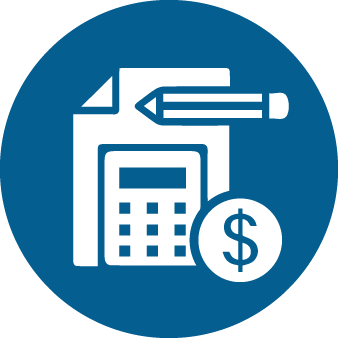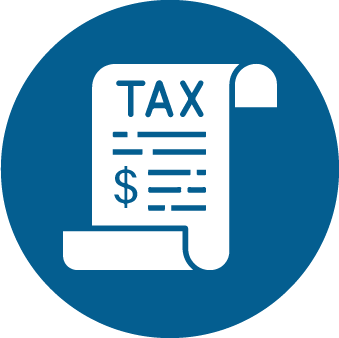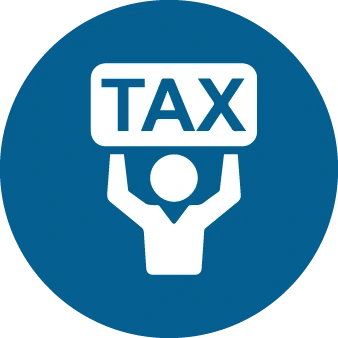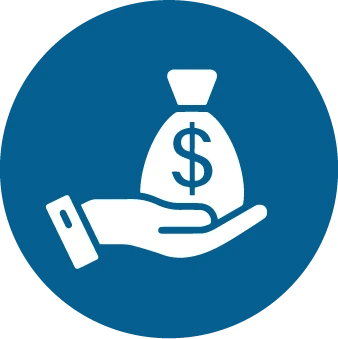Knowing how long NJ state can collect un paid back taxes is key for individuals and businesses. The state has rules for collecting unpaid taxes. The time it takes depends on the type of tax and the taxpayer's situation.
Unpaid Back Taxes Clifton NJ
It's important to understand these rules. Back taxes are the amounts owed to New Jersey because of unpaid or underpaid taxes.
Ignoring back taxes can lead to big penalties and more interest on what's owed. To avoid problems, it's important to file returns and pay taxes on time. Handling tax issues in New Jersey quickly can stop bigger money problems later.
| Back Taxes Cause | Description | Potential Consequences |
|---|---|---|
| Failure to File | Not submitting tax returns by the deadline. | Increased penalties and interest charges. |
| Inaccurate Filing | Misreporting income or deductions. | Tax audits and additional assessments. |
| Partial Payments | Paying less than the total tax liability. | Accrued interest and enforced collection actions. |
How Long Can NJ State Collect Un Paid Back Taxes?
New Jersey has a 6-year statute of limitations for collecting back taxes. This period begins from the date the tax was assessed. However, certain actions, such as filing for bankruptcy or entering a payment agreement, can extend the collection timeframe.
What Cause Back Taxes in NJ?
Knowing the causes of back taxes in New Jersey helps avoid extra tax bills.
- When income is reported incorrectly, tax problems can start. This can lead to back taxes.
- New tax laws can also cause trouble. People might not know about changes that affect their taxes. This can lead to unexpected tax bills from the state.
- Not reporting all income is another reason for back taxes. Sometimes, people forget to report certain income or don't know what to report. This can add up to unpaid taxes in New Jersey.
- Life changes can also affect taxes. Job loss, getting married, or unexpected medical bills can make taxes harder to manage. These tax triggers NJ residents face can lead to extra tax bills.
These factors show how complex taxes can be. Being aware and taking steps early can help avoid tax problems in New Jersey.
Factors Affecting the Collection Period
Several things can change how long the state can collect back taxes. For example, if someone files for bankruptcy, the state might stop collecting. Also, if a taxpayer makes a payment plan, it can change the timeline.
It's important to know these details. They can greatly impact a person's financial plans.
Key Terms Related to Tax Collection
Understanding key terms in New Jersey tax collection helps taxpayers manage their financial duties. Here, we explain terms like tax lien NJ and tax assessment NJ. This will help you understand back tax terminology better.
Tax Liens and How They Work
A tax lien is a legal claim on real estate when taxes are unpaid. It protects the state by ensuring property taxes are paid. When a tax lien NJ is filed, it impacts the property owner's finances.
It can make it hard to sell or refinance the property. If taxes are not paid, the state might auction the property to collect the debt.
Tax Assessments
Tax assessments evaluate a property's value for tax purposes. The tax assessment NJ process looks at property size, location, and market conditions. If a property owner disagrees with the assessment, they can appeal it.
They must provide evidence to support their claim of an incorrect valuation. Knowing about back tax terminology is key to handling tax issues effectively.
The Role of NJ Division of Taxation
The NJ Division of Taxation is the main state tax agency in New Jersey. It makes sure everyone follows tax laws. This tax authority NJ helps people and businesses pay their taxes on time.
This agency also helps collect taxes. It deals with both current taxes and any taxes that are late. The goal is to get back taxes owed, helping fund public services in the state.
The NJ Division of Taxation also does audits to check if people follow tax rules. They pick some taxpayers for audits. This is based on risk factors or if there are problems with their tax reports.
The agency helps taxpayers too. They offer programs to teach about tax rights and duties. They also have online tools to help with back taxes. This makes it simpler to deal with taxes.
Individual Taxes: 609-292-6400
Business Taxes: 609-292-6400
General Inquiries: 1-800-323-4400
Collections: 1-866-372-6840
What Happens After the Tax Collection Period Expires?
When the tax collection period ends, the consequences can range from minor penalties to significant financial and legal repercussions. It's crucial for taxpayers to understand what happens next if taxes are left unpaid or not filed on time. Here’s what you can expect after the deadline passes:
1. Accruing Penalties and Interest
Failing to pay taxes on time results in penalties and interest charges, which can significantly increase the total amount owed. Governments charge interest on unpaid tax debts, and penalties for late payments can add up quickly. Depending on the jurisdiction, these rates can be quite substantial, making early payment essential to avoid escalating costs.
2. Tax Liens on Property
One of the more severe consequences is the imposition of a tax lien. A tax lien gives the government a legal claim on your property until your debt is settled. It can negatively impact your credit score and make it difficult to refinance or sell assets like your home or car. In essence, a lien ensures the government has a stake in your property until the tax debt is resolved.
3. Tax Levies: Seizing Assets
If taxes remain unpaid, a government tax levy can be enacted. This means that the government may seize your assets to recover the owed amount. This could involve garnishing your wages, freezing your bank accounts, or even selling your property. A tax levy is one of the most aggressive forms of tax collection.
4. Collection Actions and Audits
Extended non-payment can trigger intense collection efforts. The tax authorities may initiate audits or demand full payment of your outstanding taxes. Failing to cooperate with tax authorities can escalate matters, leading to more aggressive collection tactics and potential involvement of third-party debt collectors.
5. Lawsuits for Unpaid Taxes
In some cases, if the tax debt remains unresolved for an extended period, the government might take legal action to recover the owed funds. This could result in a lawsuit, which can lead to further financial strain, including additional legal fees.
6. Statute of Limitations
While it might seem like the government can pursue debt indefinitely, there are often laws in place that limit how long they can collect unpaid taxes. This statute of limitations varies by tax type and jurisdiction, and once it expires, the government may no longer be able to collect the debt. However, this doesn’t necessarily mean you’re free from the original tax obligation.
7. Installment Agreements and Payment Plans
If you find yourself unable to pay your taxes in full, the good news is that many tax agencies offer installment agreements or payment plans. These allow you to pay off your debt in smaller, more manageable installments, preventing harsh collection actions. However, it’s important to contact the tax authority before matters get out of hand.

| Outcome | Description |
|---|---|
| Tax Debt Forgiveness | Opportunity for taxpayers to be free from certain tax obligations once the collection period has expired. |
| Release of Liens | The state may relinquish any claims against properties, allowing taxpayers to regain control. |
| Retention of Authority | Under specific conditions, the state retains the right to enforce unpaid taxes despite the expiration. |
Can Taxpayers Negotiate with NJ State?
Taxpayers in New Jersey can negotiate their tax debts. This can help ease financial stress. They can look into payment plans NJ and tax settlement NJ to find a solution.
When the debt feels too big, negotiation is a good option. Taxpayers can suggest payment plans that fit their budget. This way, they can manage their debt while staying in good standing.
Another choice is an offer in compromise. This lets taxpayers settle their debt for less if they meet certain conditions.
To negotiate well, taxpayers need to gather important documents. They should show their income, expenses, and why they're struggling financially. This helps the state understand their situation and possibly approve a payment plan or settlement.
Ask Precision Accounting intl for help, within Tax Relief services near you in Clifton.
| Negotiation Options | Description |
|---|---|
| Payment Plans NJ | Flexible arrangements allowing taxpayers to pay their debts over time. |
| Offers in Compromise | A settlement option where taxpayers pay a reduced amount to clear their debt. |
| Tax Relief Programs | Programs designed to assist taxpayers facing financial difficulties, possibly reducing payable amounts. |
Resolving Unpaid Taxes in New Jersey
If you are facing unpaid taxes in New Jersey, there are several options available to resolve the situation. Depending on your circumstances, some of these routes may offer relief from additional penalties, fees, or even the tax liability itself.
1. Contest the Assessment
If you disagree with a proposed assessment following a New Jersey audit, you have the right to contest it. Here are the options available:
- Informal Conference: Request a meeting with the Conference and Appeals Branch to discuss the matter.
- Tax Court Appeal: File an appeal with the New Jersey Tax Court, which requires a fee. While you can represent yourself, consulting a tax attorney is recommended.
- Refund Claim: If you paid the full assessment within a year of the appeal period, you can file a claim for a refund after the period ends.
2. Bankruptcy as an Option
Although bankruptcy can be costly, it may be a viable solution for those with significant personal liabilities, including unpaid taxes.
In some cases, state taxes may be discharged through bankruptcy proceedings. If you're considering this option, consult a bankruptcy attorney to determine if it’s right for you.
3. Tax Amnesty Programs
New Jersey has held tax amnesty programs in the past, though none are currently active. The last program ended on January 15, 2019, offering taxpayers the chance to settle back taxes with waived penalties and reduced interest. If another program is launched, it could be an excellent opportunity to resolve your tax issues.
4. Appeal Rights and Practical Tips
While New Jersey does not allow taxpayers to appeal tax collection determinations, you can follow these practical steps to resolve issues:
- Escalate the Issue: If you're having trouble with your case manager, ask to speak with a supervisor for a fresh perspective and potential resolution.
- File a Request for Assistance: If you believe your case is being mishandled or you’re experiencing undue hardship, contact the Office of the Taxpayer Advocate (OTA). The OTA can help resolve issues that fall under the Division’s jurisdiction and may provide solutions.
5. Certificate of Liability (COD) and Lien Releases
The Division of Taxation will only release a Certificate of Liability (COD) in certain conditions:
Full payment of taxes owed, including penalties and interest.
A Closing Agreement or Penalty Abatement is in place to satisfy the debt.
Consequences of Not Paying Back Taxes
Not paying taxes in New Jersey can lead to big problems. Penalties for unpaid taxes NJ can make your financial situation worse. Interest starts to add up, making the total you owe even higher.
Ignoring your taxes can lead to serious issues. New Jersey authorities might take legal steps to get the money back. This can include:
- Wage garnishment, where a part of your income goes to pay taxes.
- Seizure of assets, like bank accounts and property.
- Negative effects on your credit score, making it harder to get loans in the future.
Knowing these risks is important. It helps you stay on top of your taxes. By acting early, you can avoid many of these problems.
Tax Abatement and Relief Programs in NJ
New Jersey has many programs to help taxpayers with back taxes. These NJ tax abatement programs can really help families in need. Knowing how these programs work can help taxpayers get the financial help they need.
The Property Tax Reimbursement Program, or Senior Freeze, and the Homestead Benefit Program are key options. They offer special benefits for seniors and low-income families. It's important to check if you qualify for each program.
To apply, you need to gather financial documents and fill out the right forms. You can find these through the New Jersey Division of Taxation. Make sure to fill out the application correctly and on time to get tax relief NJ.
| Program Name | Target Audience | Eligibility Criteria |
|---|---|---|
| Property Tax Reimbursement Program | Seniors, Disabled Individuals | Must meet income limits, be a New Jersey resident, and own property. |
| Homestead Benefit Program | Homeowners | Must reside in New Jersey, meet income requirements, and own or rent a home. |
Using these programs can save a lot of money and offer much-needed relief. By taking part in these programs, taxpayers can manage their finances better and get help from the state.
Important Deadlines for NJ Taxpayers
It's important for taxpayers to meet NJ tax deadlines to avoid penalties and interest. Knowing the tax filing dates in NJ helps manage financial duties. Key dates include the due dates for annual tax returns, estimated tax payments, and appeals.
The table below lists important tax dates for New Jersey taxpayers:
| Tax Event | Deadline |
|---|---|
| Filing State Income Tax Returns | April 15 |
| Payment of Estimated Taxes (1st Quarter) | April 15 |
| Payment of Estimated Taxes (2nd Quarter) | June 15 |
| Payment of Estimated Taxes (3rd Quarter) | September 15 |
| Payment of Estimated Taxes (4th Quarter) | January 15 |
| Deadline for Tax Appeals | 160 days after the tax assessment |
Missing these deadlines can result in big penalties. Taxpayers should put these dates on their calendars. This way, they can file on time and stay compliant. Knowing NJ tax deadlines helps avoid financial risks.
Conclusion
Understanding NJ tax collection and back tax obligations is key for taxpayers. The article covered important topics like when back taxes are due and how long the state can collect them. It also talked about the NJ Division of Taxation's role.
Knowing these details helps people handle their taxes better. It's important for avoiding fines and managing money well.
New Jersey taxpayers have many resources to help with taxes. This includes programs for tax relief and abatement. These can be very helpful in tough times.
Staying informed about taxes is vital. It helps taxpayers in New Jersey manage their tax duties well. Knowing the laws about back taxes can make a big difference.
FAQ
How long does New Jersey have to collect back taxes?
New Jersey usually has 6 years to collect back taxes from when they were assessed. But, things like bankruptcy or talks with the tax office can change this time.
What are back taxes in New Jersey?
Back taxes are what New Jersey says you owe because you didn't pay or paid too little. This often happens if you didn't report your income right or missed payment deadlines.
What causes back taxes to accumulate in New Jersey?
Back taxes can build up for many reasons. This includes not reporting income correctly, changes in tax laws, or not reporting all income. Also, personal money changes can lead to unexpected tax bills.
Are there statutory limitations on tax collection in New Jersey?
Yes, New Jersey has rules on how long it can try to collect taxes. Usually, it has 6 years from when taxes were assessed.
What factors can affect the period for tax collection in NJ?
Several things can change how long New Jersey can collect taxes. This includes bankruptcy, talks with the state, and special cases where rules are relaxed.
What is a tax lien in New Jersey?
A tax lien is a legal claim on property because of unpaid taxes. In New Jersey, it can really hurt your property rights and your financial standing.
How are tax assessments determined in New Jersey?
Tax assessments in New Jersey are based on income and property values by the state's tax office. If you think your assessment is wrong, you can appeal it.
What is the role of the New Jersey Division of Taxation?
The New Jersey Division of Taxation makes sure tax laws are followed. They collect overdue taxes, do audits, and help taxpayers understand their tax duties.
What happens when the tax collection period expires in New Jersey?
When the time to collect taxes runs out, taxpayers might get relief. This could mean tax debt forgiveness and the removal of property liens, but there are exceptions.
Can taxpayers negotiate their debts with NJ taxes?
Yes, taxpayers in New Jersey can work out tax debts. They can set up payment plans or offers in compromise if they meet certain requirements and provide the right documents.
What are the consequences of not paying back taxes in New Jersey?
Not paying back taxes can lead to big financial penalties and interest. It can also cause wage garnishment, asset seizure, and hurt your credit score.
What tax abatement programs are available in New Jersey?
New Jersey has tax relief programs like the Property Tax Reimbursement Program and the Homestead Benefit Program. They help taxpayers with back taxes.
What are the important deadlines for taxpayers in NJ?
Important tax deadlines in NJ include when to file tax returns and pay estimated taxes. Missing these can lead to penalties.
Related Articles
Services provided for you
Bookkeeping Services in Clifton, NJ
We serve a range of industries and customers, in an organized, friendly, and reliable way.
Business Tax Services
We are in a position to identify tax planning shots that reduce both your current and future tax liabilities.
Individual Tax Services
We gauge our worth by the personal and business successes of our clients and industries.
Payroll Services
For small and large corporations, payroll systems, highly qualified payroll experts support our services. Our primary objective is to provide customized services and highly favorable pricing for you.
Non-Profit Organization Services
Precision Accounting Intl can assist you set up and maintain your non-profit organizations nontaxable standing by handling all the authority reportage for you.
Part-Time CFO Services
If you"re ready enough to be in this role. Our Part-Time CFO Service Package provides you with a knowledgeable financial manager who will work with you to help guide the progress of your business.











